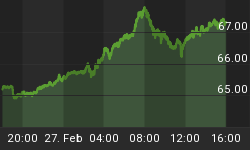Times like these can often bring out the good in people. But they also trigger quite a lot of “entrepreneurial” sensors of the particularly opportunistic type—the kind usually described as “war profiteering”.
Many are trying to, by any means necessary, to grab a piece of pie either by adapting their business offerings to changing consumer or needs while others are just outright abusing relief funds.
From sellers on Amazon offering magic potions to kill the virus, and politicians and their patrons spouting all kinds of nonsense, to one that’s gotten far less media attention so far—the mafia—welcome to the schemes of the century.
In Italy’s case, this is the traditional mafia’s time to shine.
Local media and European Union agencies suspect that the Ndrangheta and Camorra mafia organizations are upgrading their business models.
Even though mafia business structure has been present in the healthcare, construction, mortuary and waste disposal services in Italy for a long time, the pandemic and the chaos that ensued in Italy’s south was a unique opportunity for a mafia that has by now expanded its influence.
Last November, one top local politician was charged with laundering money through 'Ndrangheta-controlled pharmacies in exchange for mafia support.
Mafia have also seized the chaotic day to ‘reach out’ to the struggling small and medium-sized companies.
According to some estimates, there are some 100,000 companies in Italy, mostly small and family owned, that are at risk of shutting down.
Local media reported that many struggling businesses started to receive unusual buyout offers, often much lower than their “normal” market price. The deal would be sweetened by instant cash payment. Others were offered cash injections. Still others had no choice at all.
The Bank of Italy reported recently that the number of suspicious financial operations increased by 7% last year to 113,000.
Yet, mafia have also entered the business of fighting Covid-19, trying to render themselves untouchable by being indispensable
Last May, the authorities intercepted a telephone conversation of a person suspected of being affiliated with the Camorra organization, saying that he is planning to turn his relative’s car wash business into a sanitation company.
However, that activity is not really illegal as many businesses adopted to the pandemic’s needs. The real question is whether the carwash was a legit business in the first place.
Also, mafia groups have been reported to distribute food to the poor and provide interest-free loans in the southern part of the country.
Again, nothing illegal about it but distributing food parcels to the needy is an old mafia tactic, coined by Al Capone in the late 1920 with the goal of gaining credibility and stepping in as an alternative to the state.
However, mafia groups are now eyeing ways to infiltrate the European Union Recovery Fund, set up to help the economies of the state members. Italy was one of the worst hit European nations in regard to the pandemic and its economy contracted 8.9 percent last year.
Last December, the EU unlocked an $890 billion Recovery Fund and Italy is projected to be the biggest recipient of the fund, set to receive about $235 billion, 60 percent of it in cheap loans.
Last year’s unchecked and easy buyouts of struggling businesses by mafia groups means that they might be first in line to get EU aid.
“The mafia has been choosing the companies that are best-placed to take part in recovery fund tenders, especially in the health and infrastructure sectors where a great deal of money will be spent,” Maurizio Vallone of the Antimafia Investigative Directorate told Bloomberg.
Still, misuse and abuse of funds is a global problem, and no country is immune to it.
In the US, the authorities charged 474 people with trying to steal more than $569 million from the Coronavirus Aid Relief and Economic Security Act passed in March 2020.
















